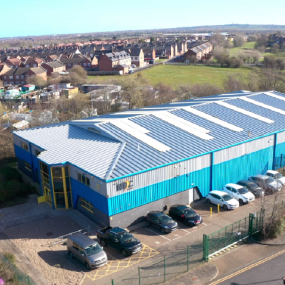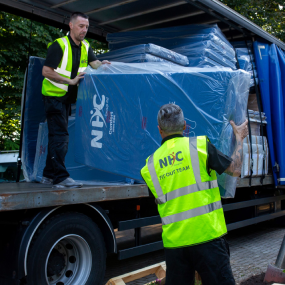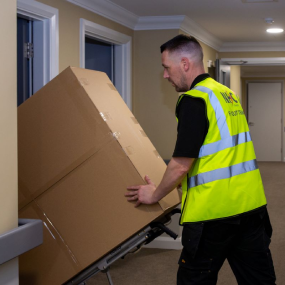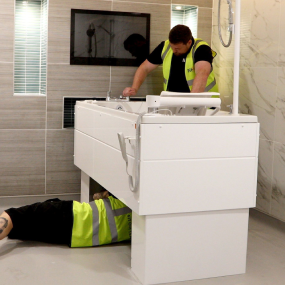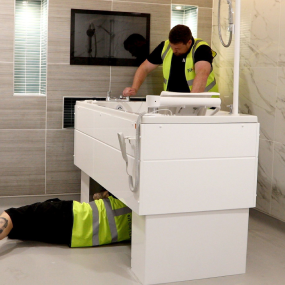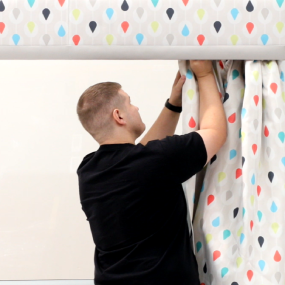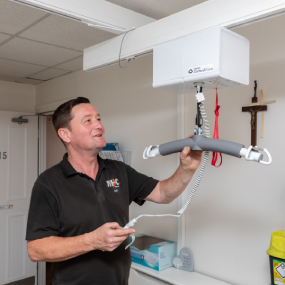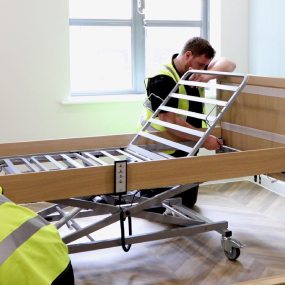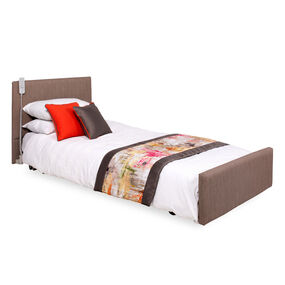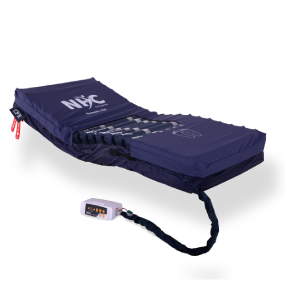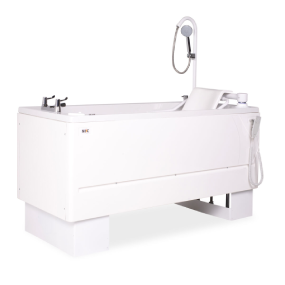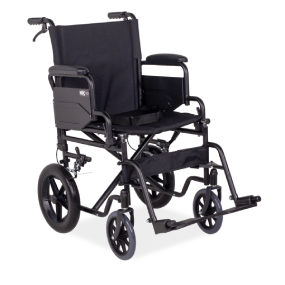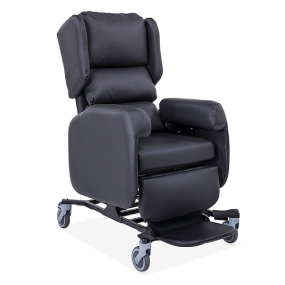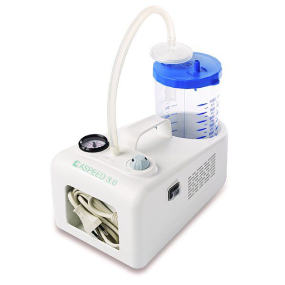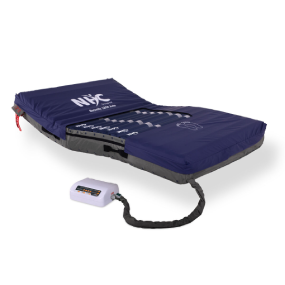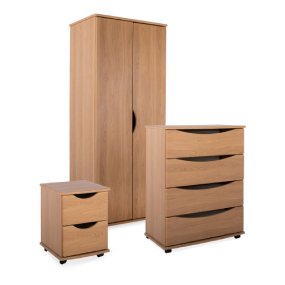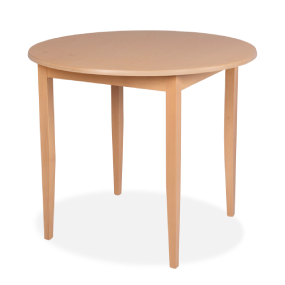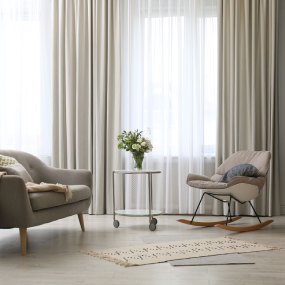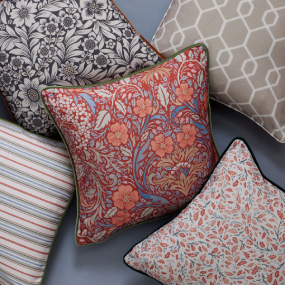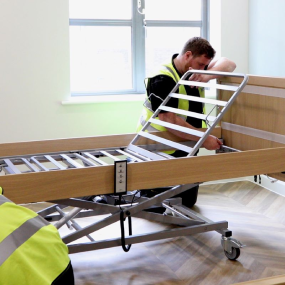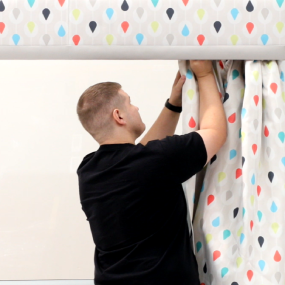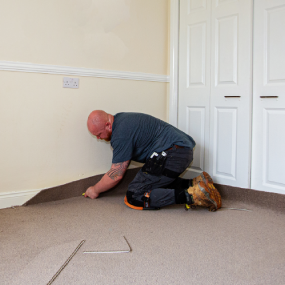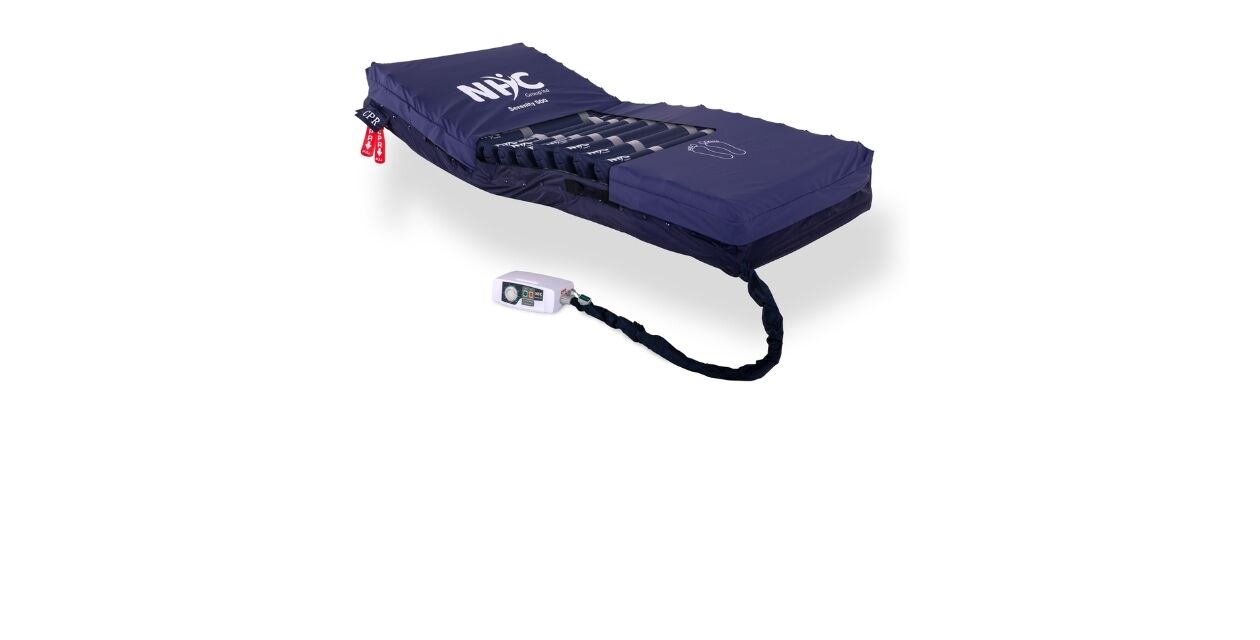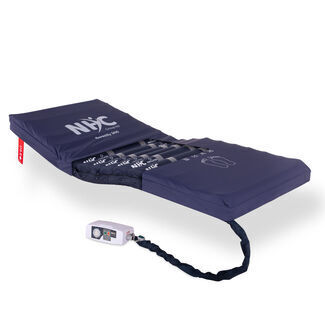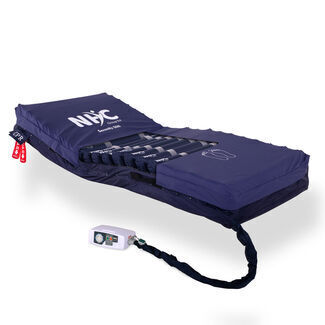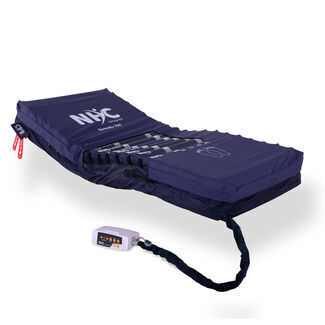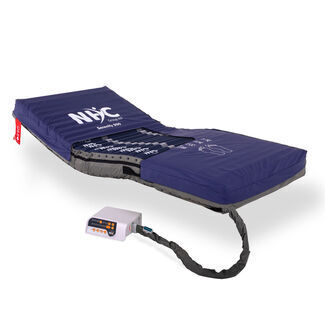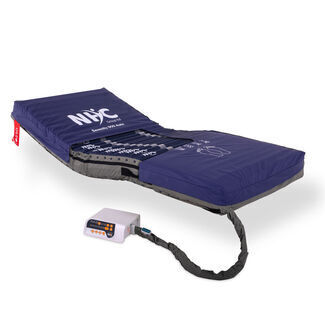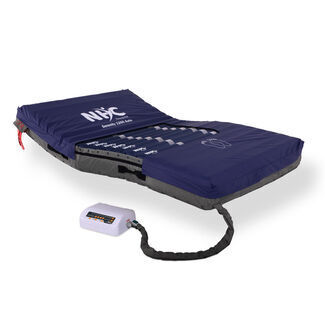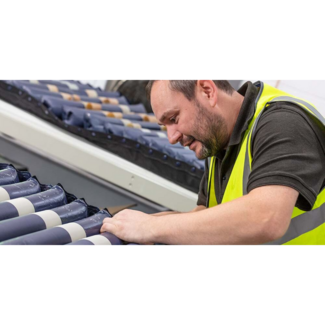Free Next Day Delivery*
Cost Efficiencies For Large Volumes
Airflow Mattress Decontamination & Repair
Robust Supply Chain - Large Stock Holding
Maximise Comfort and Safety with Our Advanced Mattresses
Our Alternating Pressure/Airflow Mattresses, featuring smart pressure distribution and airflow technology, provide tailored support and comfort to enhance resident well-being, backed by over 20 years of expertise and ISO9001 certification – all at competitive prices with a 12-month pump warranty. They're a durable, hygienic choice designed to prevent bedsores, ensuring care homes can invest in their residents' health with confidence.
Refine Selection
Current Selection
Colours
Sizes
Brands
Weight Mode
Mattress Type
Risk Category
Product Warranty
Bed Width (cm)
Pump Unit Type
CPR Function
Weight Mode
Mattress Type
Max User Weight
Cover Type
Gender
Price
Serenity 300 Analogue Alternating Pressure Overlay Mattress – Medium Risk
Serenity 500 Analogue Alternating Pressure Mattress - High Risk
Serenity 700 Digital Alternating Pressure Mattress – Very High Risk
Serenity 900 Digital Low-Pressure Distribution Alternating Pressure Mattress – Very High Risk
Serenity 900 Auto-Weighing Digital Alternating Pressure Mattress – Very High Risk
Serenity 1200 Auto-Weighing Digital Bariatric Alternating Pressure Mattress – Very High Risk
Airflow & Alternating Pressure Mattress Decontamination and Repair
Looking for Foam Mattresses? Click here:
What Are Pressure Mattresses or Airflow Mattresses?
Pressure, airflow or alternating air mattresses, are mattresses that are designed to enhance the comfort of people suffering from bed sores or at risk of developing bed sores. Also known as pressure-relieving mattresses, they provide high levels of support for the body and the head and thus relieve any pressure point stress.
Unlike a regular mattress, pressure mattresses have air pockets that are automatically filled with different amounts of air in key points. They are designed to decrease the pressure on the areas of the body that are most at risk of developing bed sores.
Countless studies show that the right mattress is key in relieving pressure ulcers. Higher-specification mattresses (like pressure-relieving ones) have been shown to reduce the incidence of bed sores in limited mobility patients. Along with regular patient repositioning, pressure mattresses are the most important factor in avoiding bed sores or reducing them considerably.
How Do I Choose the Right Air Flow Mattress?
As technology evolves and we understand patient needs better, mattresses are developing, and more options are becoming available in the market. Whilst there are many different specifications available, there are three main types of mattress as below:
Static Mattresses (also Known as Reactive Surface Mattresses)
Static mattresses are equipped with one or more pressure relieving foam(s). They work by evenly distributing the patient’s weight overtime, over a large surface, and keeping a continuous low pressure. Their surface remains static, but they respond to heat, body shape, and movement.
Static mattresses provide additional pressure relief through the air pockets within the foam layers and shaped surfaces.
It’s important to note that static mattresses relieve a fairly small amount of pressure, so they are designed for the prevention of bed sores, not their treatment. This is why static mattresses are the standard recommendation for grades 1 and 2 ulcers. Regular patient repositioning is also recommended in these cases.
Alternating Air Mattresses (also Known as Active Surface Mattresses)
Alternating pressure mattresses (or airflow mattresses) use a dynamic lying surface to redistribute pressure evenly. Airflow mattresses use alternating rows of air pockets positioned on the sides. The alternation of the rows is controlled with a pump that’s usually connected to the mattress and the bed footboard. This pump is designed to move the air regularly from inflated pockets to the deflated ones.
The alternation helps provide support to the patient through the inflated cells and relief for the skin above the deflated ones. Airflow mattresses are used to treat grade 3 and grade 4 ulcers in patients who have typically been bed-bound for a while.
While the alternating pressure of these mattresses can considerably reduce existing bed sores and prevent the formation of new ulcers, it’s important to note that the constant alternation can be uncomfortable for some patients. Also, the sound the pump compressor makes can be disturbing.
Hybrid Mattresses
As the name suggests, hybrid mattresses use a combination of static and alternating systems. This typically works by inserting air cells in a foam mattress covered with a soft foam topper for enhanced comfort. Just like airflow mattresses, hybrid mattresses use a pump to alternate between air cells.
Hybrid or combination mattresses offer the best of both worlds: bed sore prevention and enhanced comfort for the user. They are usually recommended for people who are at high or very high risk of developing pressure ulcers, but who still have a certain degree of mobility.
Who Can Benefit from Using Pressure Mattresses?
Pressure-relieving mattresses are the standard of care in hospitals and care homes across the UK. However, they are not a pre-requisite for any patient. They are usually most beneficial for patients who would fall into one of the following categories:
- People with limited mobility: this is the most important factor in determining whether a patient is at risk of developing pressure ulcers. When patients spend too much time in a single position, the added pressure leads to bed sores.
- Skin integrity: following an assessment from a trained professional, it should be determined if a patient’s skin is prone to pressure ulcers. Regularly checking for changes in the colour of the skin or heat, firmness, and moisture variations can be good indicators of bed sore risk. Similarly, ageing skin has less fat underneath and reduced elasticity and blood flow, so ageing patients have a higher risk of developing pressure ulcers.
- Pre-existing conditions: some conditions can increase the probability of developing bed sores. For instance, patients with kidney failure have higher toxins levels in their blood, which can lead to tissue damage.
How Can We Help?
NHC Group provide high quality and cost-effective equipment to the care sector. We have an extensive range of pressure relieving mattresses, air pressure mattresses & medical airflow mattresses in the UK. These mattresses are designed for the prevention and treatment of pressure ulcers in medium to high-risk patients.
The mattresses that we offer are commercial grade and are perfect for nursing homes, care homes, hospitals and for use in home care. Our mattresses work by using alternating pressure therapy, this uses pressure redistribution that stimulates blood flow and changes contract points on the skin.
And as we’ve been an established company since 2002, you can trust us to make sure that you get the best deal on your mattress. Take a look below to see our full range of mattresses. To find out more about the product, simply click the one you want to know more about.
However, if you need any help figuring out which airflow mattress is right for you, please do not hesitate to get in touch with our friendly team who would be happy to help with any queries you may have!
What are pressure sores?
As the name suggests, pressure sores usually occur when a person spends too much time in the same position, due to the fact that there is constant pressure on a single area of their skin. Other reasons can include ageing skin, which is less elastic and more prone to developing ulcers and pre-existing conditions like depression or kidney failure.
What mattress do I need to prevent pressure ulcers?
For patients who haven’t developed pressure ulcers yet, static mattresses are the recommended choice. They relieve some of the pressure and help prevent bed sores.
What mattress do I need for people with pressure ulcers?
For people who have already developed bed sores, airflow mattresses or hybrid mattresses are the ideal choice. They can help alleviate existing ulcers and prevent the development of new ones.
What is the right mattress for individuals with a certain degree of mobility?
Depending on the length of time they spend in bed, their age, and their pre-existing conditions, air flow or hybrid mattresses are usually recommended, especially since the users can maneuver the pump themselves, thus reducing the discomfort typically associated with it.
For patients who are not bed-bound for long periods of time or indefinitely, a static mattress can be a good choice too.
What are the main types of bed sores?
Skin integrity and mobility levels are the main factors in determining the risk to the different kinds of pressure sores. According to their intensity, there are four main grades of pressure ulcers:
Grade 1: the first type of ulcer you notice consists of skin reddening
Grade 2: you can identify superficial wounds that are similar to blisters
Grade 3: this is one of the most sever types of sore, where all the skin layers are damaged and the under-skin tissue also starts to exhibit damage signs
Grade 4: the last grade of pressure sores is characterised by extensive damage to the skin and underlying tissue, along with damage to bones, joints, muscles, or tendons.
How much does a cheap pressure mattress cost?
Pressure mattress prices in the UK start at around £100. However, before you buy a cheap mattress make sure it is the type your patient or loved one needs. Oftentimes, you may need to exchange the cheap pressure mattress for a more expensive air flow mattress and lose money in the process.
How much does a good pressure mattress cost?
The average price for a pressure mattress is £1000. Some of the more expensive models, like high risk airflow mattresses can reach £3000+. Before you buy a pressure mattress in the UK, we advise you to talk to a medical professional to assess your needs. This way, you can buy a pressure mattress that fits your budget without worrying that you’ll have to exchange it soon.
Where can I buy an airflow mattress in the UK?
There are countless airflow mattress sellers in the UK. We recommend you always work with an established company, so you can get the advice you need and make sure that the pressure mattress you buy in the UK meets all the current standards dictated by the NHS.

